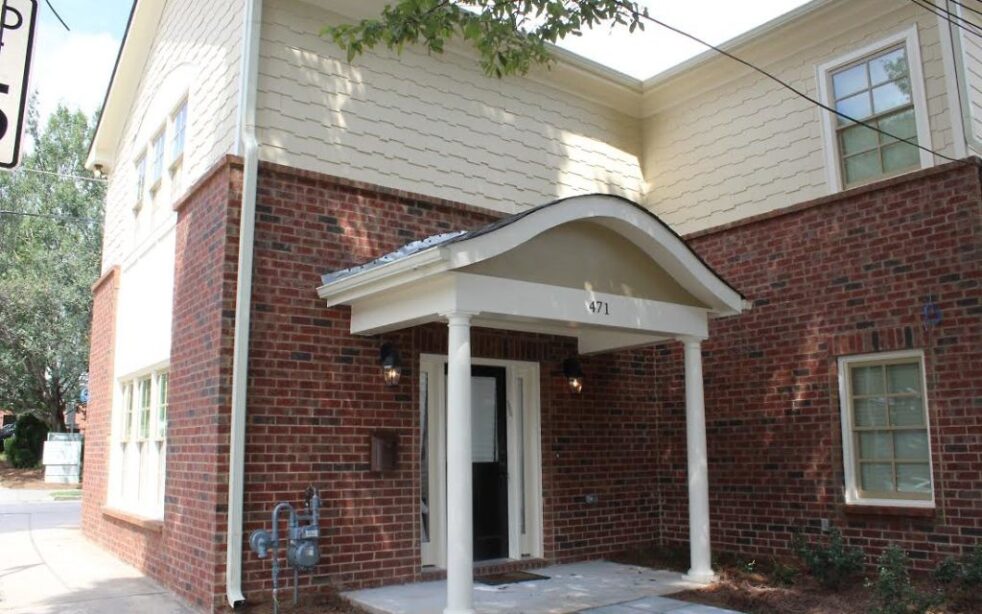Two on-campus Jewish organizations, Chabad and Hillel, have adapted to the pandemic restrictions to provide students with new ways to observe the High Holy Days, which include Rosh Hashanah, the 10 Days of Awe and Yom Kippur.
“The biggest challenge to any of our programming, but specifically around High Holidays, is that we can’t gather,” said Hillel Program Director Lauren Rekhelman.
Rekhelman, who oversees the team of staff for Tech’s Hillel and makes sure all programs are running smoothly, elaborates on changes that have been made to their events.
“Particularly for the High Holidays, you would go to synagogue in big numbers and you would have services and you would have a big, festive meal together on Rosh Hashanah,” said Rekhelman.
“So this year, we’ve adjusted and all of our meals have been grab-n-go style.”
Rosh Hashanah marks the start of the Jewish New Year on the Jewish calendar. This is the start of year 5781 and Rosh Hashanah fell on Sept. 18-20.
“We had our Hillel table with all the meals, pre-packaged, individually wrapped, all of that, and the students came and picked up what they had ordered,” said Rekhelman.
“And then we offered virtual services for all of Hillels of Georgia, so we had a rabbi leading services from our building at Emory and we live-streamed it on a Zoom webinar.”
Chabad has also been facing similar challenges this semester. Second-year BMED and Chabad Leadership Team member Mira Mutnick explains what this has meant for their events.
“Every week, pre-COVID, there would be Shabbat dinners on Friday night. So Shabbat is the main weekly holiday that we have and so on Friday night, we have a big dinner,” said Mutnick. “… but during COVID, we can’t really do that, so they’re running Shabbat to-gos, where they’re packing up dinners and people can come and pick up the dinners and have them with their friends in smaller groups, socially distanced.”
To celebrate Rosh Hashanah, Chabad held a special Shabbat to-go and small events at the Chabad House.” It was more of a grand Shabbat to-go with more food in the boxes just to celebrate the holiday, including different kinds of honey and apples,” said Mutnick.
“And then they had small in-person services in their backyard in the tent for people who wanted to have the prayer service.”
On Sept. 20 at 5 p.m., Chabad also held a shofar blowing on Tech Green.
“A shofar is a ram’s horn and that’s one of the main aspects of Rosh Hashanah is hearing the shofar blow,” said Mutnick.
Yom Kippur, which translates as the Day of Atonement, will occur on Sept. 27 and 28. It is traditionally a fast day in which teshuva is done, which translates to repentance or return.
“The idea of Yom Kippur is that it is a time to return to ourselves, return to our best selves, return to what we want to be doing in life and also to let go of anything you don’t want to take with you,” said Rekhelman.
“It’s an opportunity to ask for forgiveness, if that is needed, and to give forgiveness too if that is needed.”
Placed in the context of 2020’s events, the themes of Rosh Hashanah and Yom Kippur offer a chance for reflection. For Rekhleman, the global pandemic and imminent election have been especially relevant.
“For me, it definitely has an extra significance,” said Rekhelman. “It’s a chance to say, what do I want to do in the coming years to make the world a better place? And so I think that is very present for me, I obviously can’t speak to if that’s everybody’s experience, but I know it is mine.”
Mutnick also draws similarities between Rosh Hashanah and the practice of making New Year’s Resolutions.
“Learning from the lessons of coronavirus and becoming more connected to people that you drifted away from has definitely been a really big influence on Rosh Hashanah this year,” said Mutnick, who mentions getting closer to her family has been a positive this year.
Moving forward, both Hillel and Chabad are working to implement safe activities for students to participate in.
“We have been finding ways to have small groups able to gather in outdoor spaces, primarily, with social distancing and masks, [which] has been really wanted and needed,” said Rekhelman.
“So I think that as we move through the year, we’re going to try to maintain some of those small community connections where maybe five students meet each other.”
Hillel offers additional programming related to Shabbat and Jewish holidays, Israel and Jewish learning, sports and outdoors events. To find out more, students can reach out to Rekhleman at [email protected], Engagement Associate Shaina Lubliner at [email protected] or Israel Fellow Elinoy Granot at [email protected].
Chabad has also been trying in-person events in small numbers.
“They’ve started doing some Shabbat in-person for team members to keep the numbers small, and to kind of test drive it, see how people are social distancing and we’re trying to kickstart some picnics,” said Mutnick.
“There’s someone who’s trying to lead that, having more picnics around campus throughout the week, to have more of an in-person community feel while still being socially distant.”
Students interested in participating in Chabad can reach out to their Instagram account, @chabadgt_gsu.
